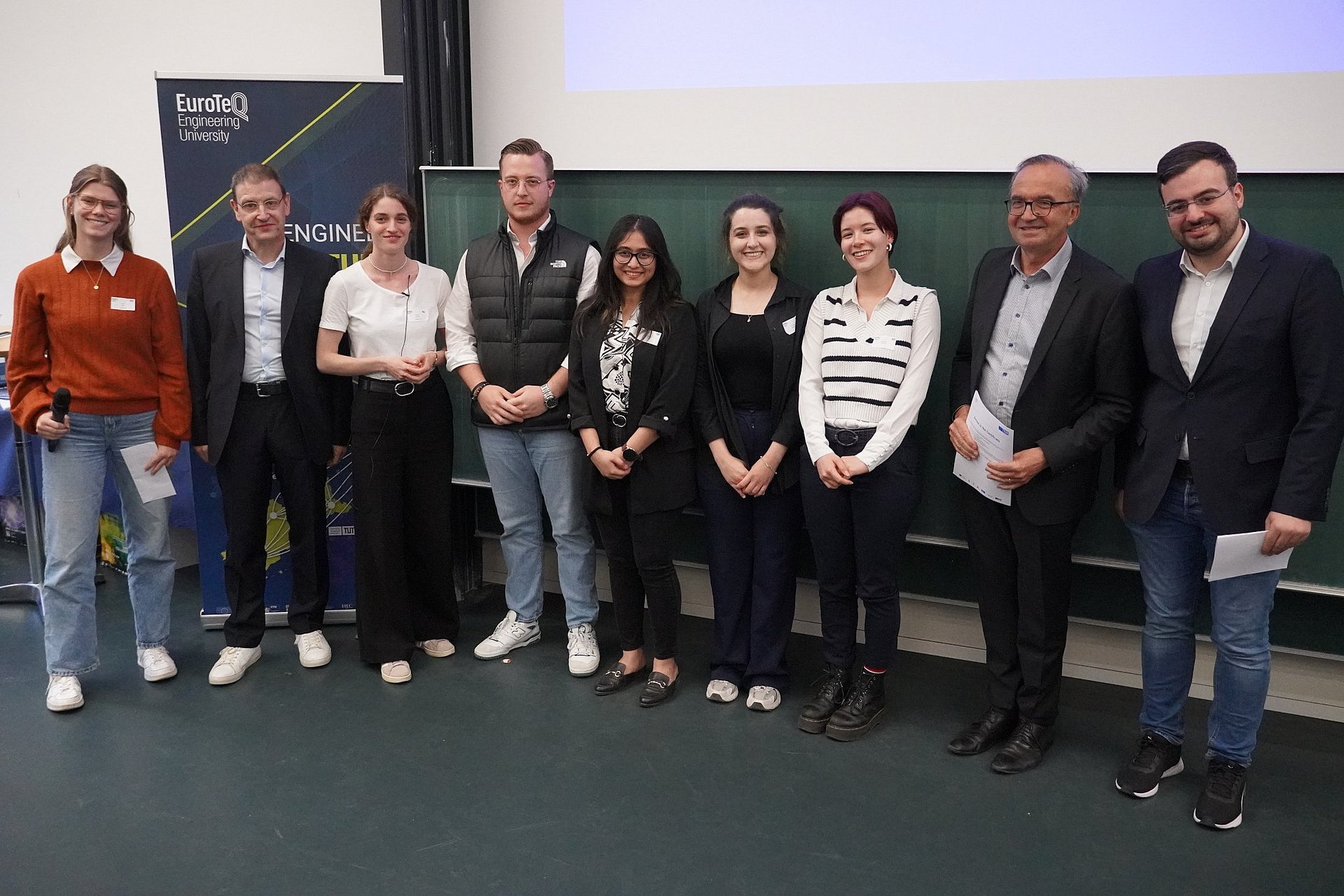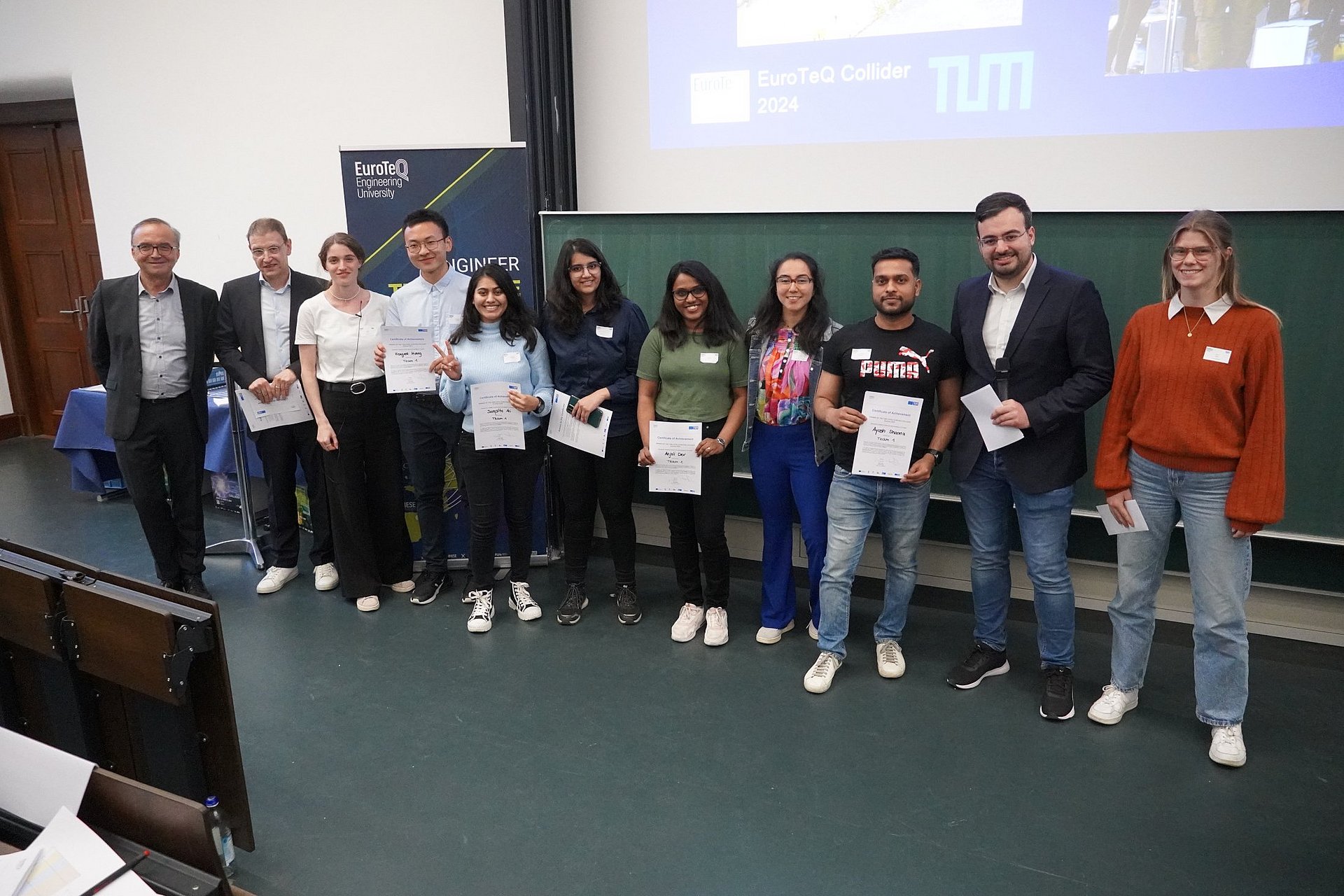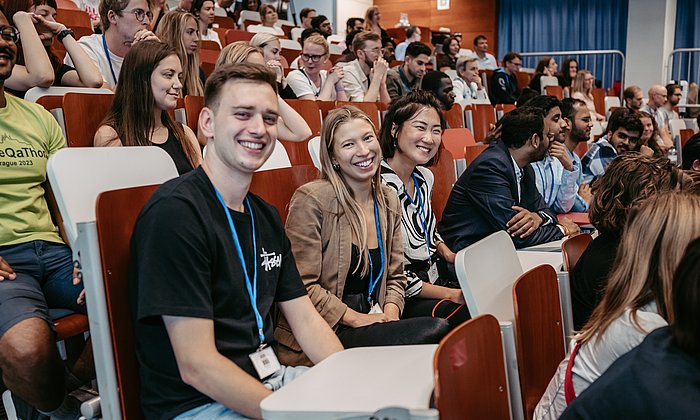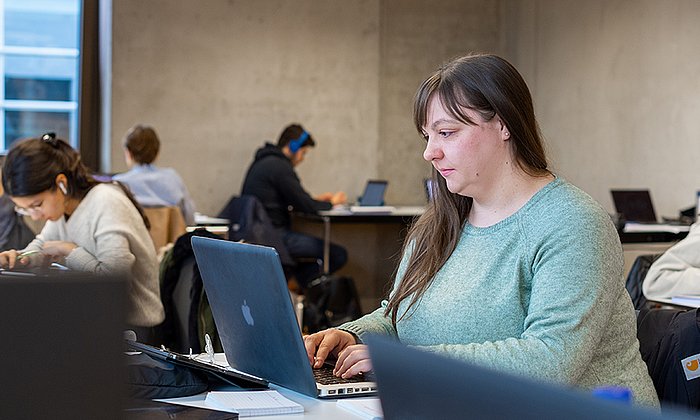Students face real-world challenges at the EuroTeQ Collider
Creating sustainable networks
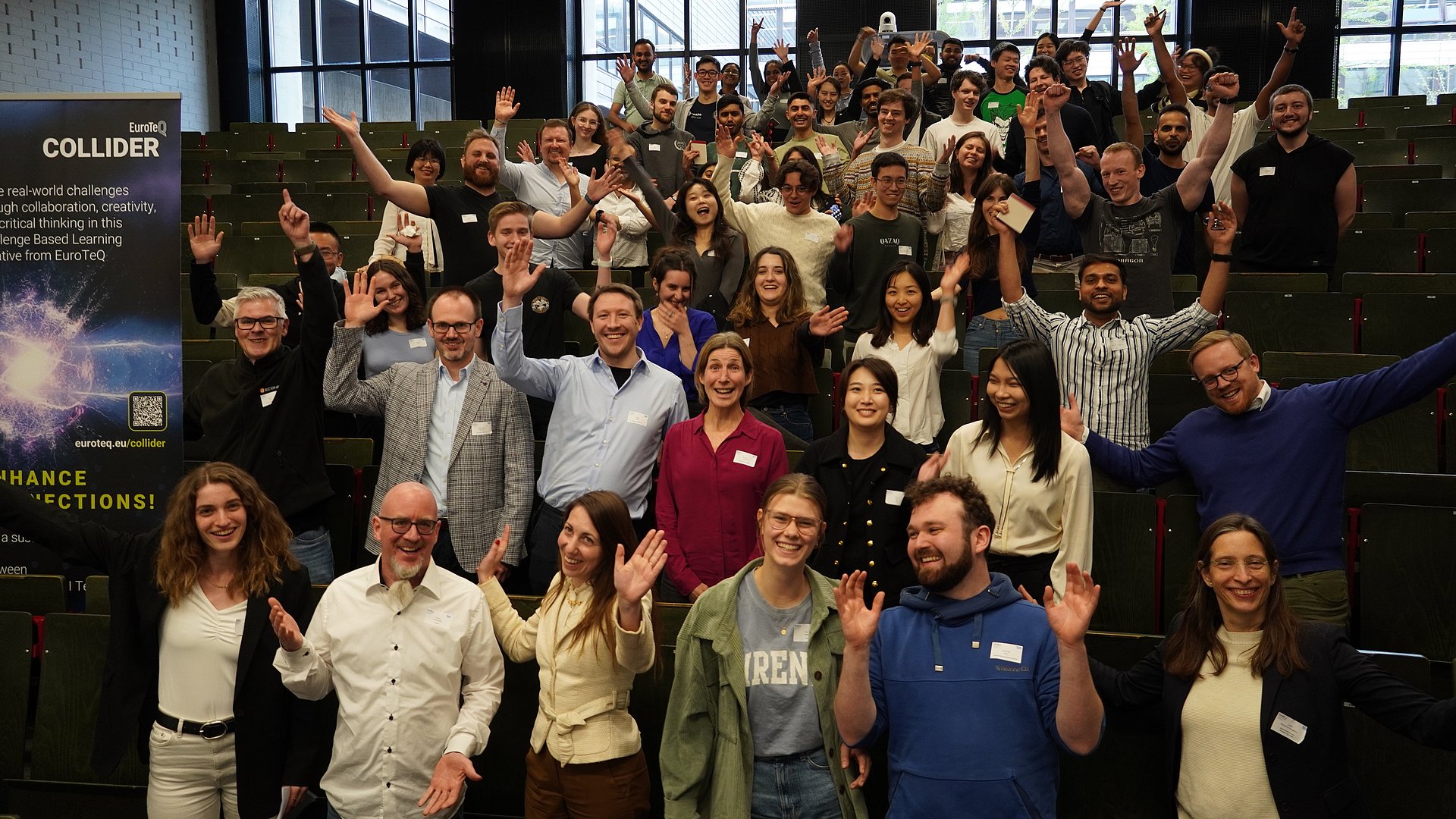
EuroTeQ is an association of leading European technical universities working together to shape the engineering education of the future. The EuroTeQ Collider is one of the centerpieces of the initiative. In the EU-funded collider, student teams develop solutions to concrete problems under the guidance of experienced professionals. During the local Collider phase, each team works on a unique challenge provided by industry experts.
Enhance connections for sustainable futures
This year’s challenges revolve around the theme “Enhance Connections for Sustainable Futures”: How can we build stronger communities by facilitating meaningful connections? How can we develop mindful relationships with nature and use its resources more carefully? How can we use technology to create effective digital and physical connections?
The students spent five weeks dedicated to their projects during the local Collider phase at TUM. They then presented their concepts to a jury of experts at a pitching event. Three teams were especially compelling. They are now preparing for a trip to Paris, where they will meet the winners from the five partner universities at the EuroTeQaThon in June – to themselves build networks, create connections, and pitch their ideas to representatives from industry, European institutions, NGOs, and the EuroTeQ Advisory Board. Those who can convince this jury as well have the opportunity to participate in the highly coveted Entrepreneurial Bootcamp in Barcelona.
Animal welfare, circular economy on a small scale, and more transparent supply chains
The “Farm Elf” team succeeded in the “Nature” category. The app provides farmers with a tool that helps them optimize the cultivation and harvesting of their fodder crops. “Farm Elf” uses satellite data and information from drones that use near-infrared spectroscopy to determine the energy content in fields. Combined with weather forecasts, this data is fed into a predictive model that recommends farmers harvest crops at the peak of their energy level. This provides livestock with better feed and reduces their greenhouse gas emissions. The climate impact of livestock farming can thus be reduced.
In the “People” category, the “Circularity Hub” project came out on top. The hub combines an offline marketplace and online services to promote approaches to a circular economy in student halls of residence: Useful items that would often be disposed of at the end of the semester can be given away or sold here. This not only avoids waste but also fosters the local student community. The project will undergo a two-week pilot phase in the Olympic Village, after which the Circularity Hub will help improve sustainability and networks in other halls of residence as well.
Finally, the third category, “Technology”, was won by the “Digital Product Passport” from the “SME Trace” team. It aims to make it easier for around 24 million small and medium-sized enterprises (SMEs) in Europe to work more sustainably and networked. A lack of digital resources in SMEs is one of the main reasons for problems with digital traceability, resulting in a lack of transparency in supply chains. The Digital Product Passport simplifies access to digital product information, ensuring efficient, compliant documentation. A SaaS app streamlines data input via document scanning and extraction, creating DPPs and QR codes without heavy IT investments. This empowers SMEs, fostering sustainable, transparent value chains.
Promoting interdisciplinary exchange while earning credits
Thus, the EuroTeQ Collider helps to turn ideas into impact. Students work on projects with social relevance, develop their talents, and create networks in various disciplines, with fellow students from all over Europe, and with potential future employers.
Networking across disciplines and national borders is also a key aspect of the joint course catalog of the EuroTeQ universities. Students can attend courses at all partner universities, receive certificates of achievement, and may have the credits recognized for their degree program. All information on the courses on offer and registration can be found at www.international.tum.de/en/global/euroteq-course-catalogue. Registration is open until July 29.
Technical University of Munich
- Angela Wester – TUM Junge Akademie
- angela.wester@tum.de

